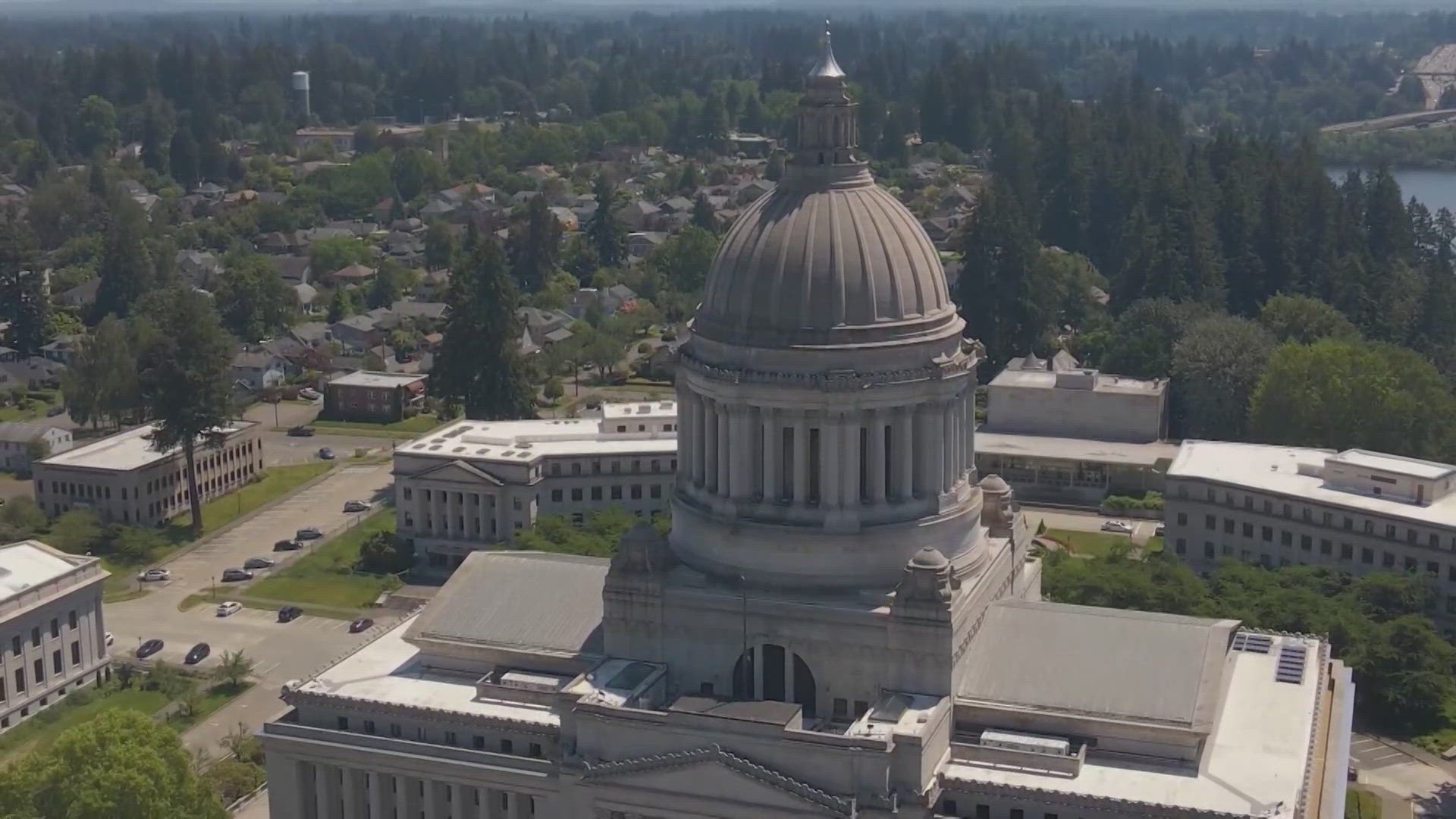OLYMPIA, Wash. — To address a $12 billion budget gap, Gov. Jay Inslee is proposing a 1% wealth tax on the state's richest residents, according to a budget proposal released Tuesday morning.
As one of Inslee's last responsibilities in the governor's office, he is issuing a proposed budget to the legislature for the 2025-2027 biennium. In it, he urged lawmakers to avoid making cuts that would put the cost burden of filling the budget gap on the lowest-income Washingtonians.
"As legislators consider options for closing this sizable budget gap, I urge them to heed the lessons of the past when deep cuts left millions of hard-working Washingtonians bearing the costs," he wrote. "This is not the time to retreat from our efforts - it's time to be resolute in our commitment to moving forward."
Instead, Inslee's proposal suggests taxing the state's richest 3,400 residents in order to preserve investments in healthcare, education, climate action and transportation.
Ultra-rich individuals would pay a "modest 1%" on wealth over $100 million. The tax would raise $3.4 billion in the two years immediately post-implementation and $10.3 billion over four years.
Inslee noted that Washington state has the second-most regressive tax system in the country, where the lowest-income residents shoulder six times the cost burden as wealthy Washingtonians. The wealth tax is an effort to spare those already struggling from having to feel the impacts of the state's budget deficit and protect public services. He noted that the state struggled for years to recover from budget cuts during the recession that negatively impacted the state's behavioral health and education systems.
"This reform makes sure the .0004% of people who have benefitted the most from our economy contribute their fair share so we can protect our progress on the safety nets and systems that keep us all safe, healthy and secure," the budget proposal reads.
The wealth tax would instead create a reliable form of revenue "that most residents will never pay, or even know someone who does," according to the proposal.
Inslee also proposed a one-year increase on the state's business and occupation tax for businesses that make over $1 million a year in the "service and other activities" category. The tax would increase by 20% between October 2025 and December 2026. Starting in January 2027, a permanent increase of 10% would go into effect across the board. This change would impact about 20,000 businesses in the state. This tax proposal is expected to generate $2.6 billion over four years.
Businesses that qualify for small business tax credit or have an income below the current tax filing threshold would be unaffected.
This is only a proposal from Inslee. It will be up to the House and Senate in the upcoming legislative session to negotiate a final budget. Should Washington implement the wealth tax, it would be the first state in the nation to do so.
$2 billion in reductions, delays
Inslee said he has already begun to take steps to address the budget shortfall, including a freeze on non-essential hiring, contracts and travel.
In addition, he proposed around $2 billion in reductions or delays over the next four years.
This includes the proposed closure of the Mission Creek Corrections Center in Mason County and three Department of Corrections re-entry centers. The state would close two Residential Habilitation Centers, delay bonuses for Board Certified educators, and pause a planned expansion of childcare subsidy eligibility.
"These are real cuts that were made, but we think that they were necessary given our circumstances," Inslee said. "Anything much deeper I believe would go backwards."
'A good starting point'
Although Inslee will not be in office by the time the proposed budget makes it through the legislature, Director of the Office of Financial Management Pat Sullivan said he believes Inslee's proposal is a "good starting point" for Gov.-elect Bob Ferguson and the state House and Senate.
Sullivan attributes the $12 billion budget shortfall to reduced sales tax revenues, inflation and increased spending on housing and childcare. He said Inslee's wealth tax proposal is a step toward addressing Washington's regressive tax structure.
"This is an attempt to try to create a more equitable tax system," he said.
Sullivan said the state could have increased the sales tax to try and address the budget gap but instead decided to focus on the wealthiest residents who pay less of a share of their income to make up some ground.
"Those who can afford to pay a little more, we're asking to pay a little more," Sullivan said.

